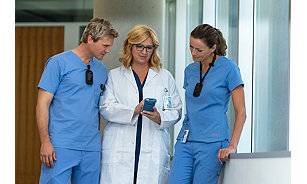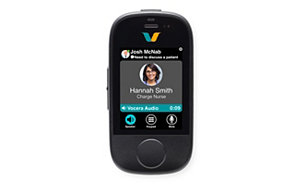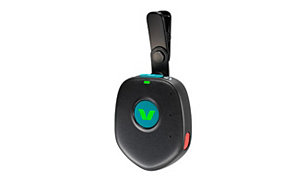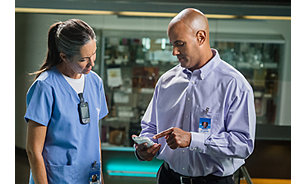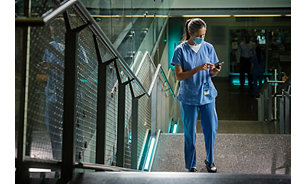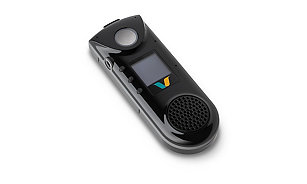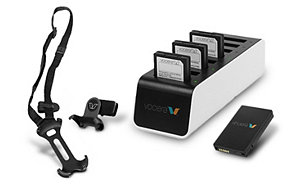Clinical Communication and Workflow
Turning data into insights. Turning insights into enhanced patient care.
Unify all the people and information needed to deliver patient care and simplify communication and workflows. Create a richer, more human connection for care teams, patients, and their loved ones. Our solutions can be tailored for your specific needs, from urgent, real-time voice communication when seconds matter, to secure messaging, closed-loop EHR workflows, and more.
M0000015123 REV AA


